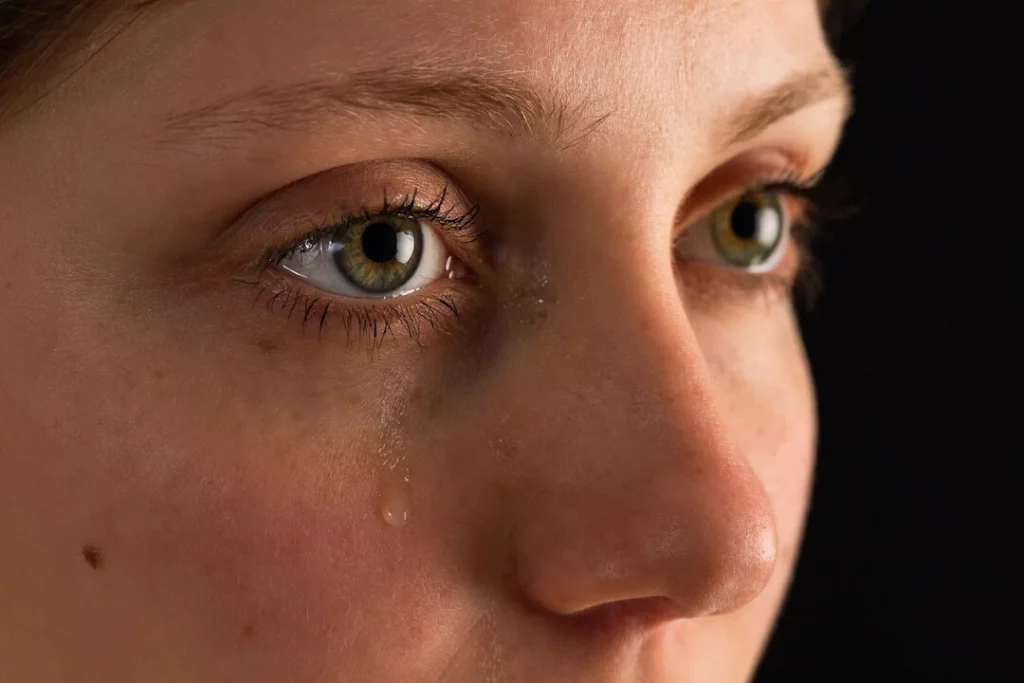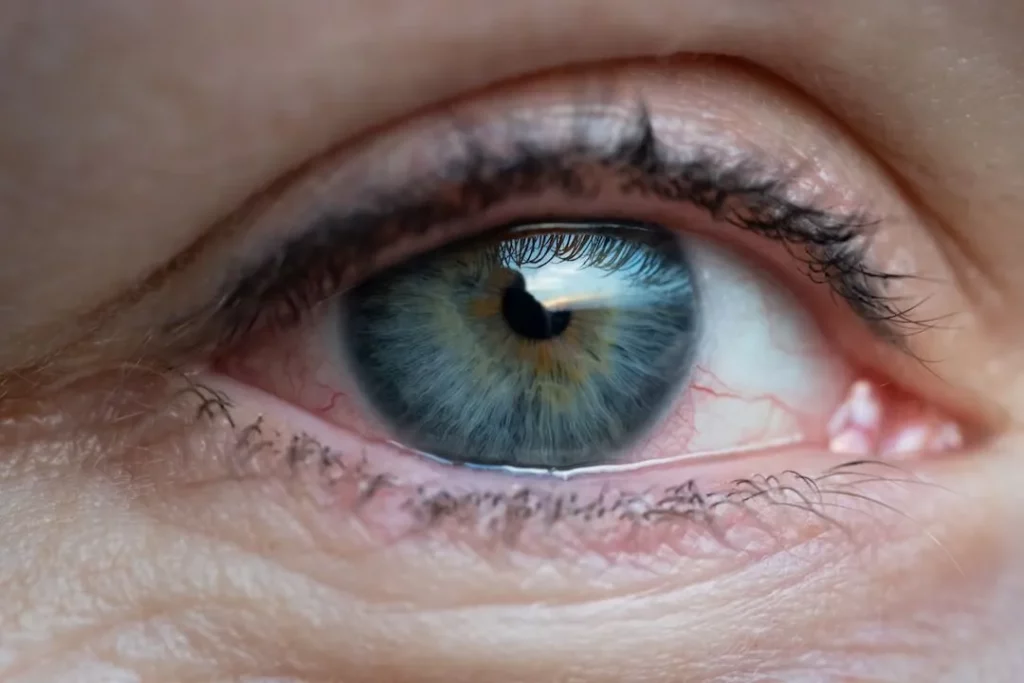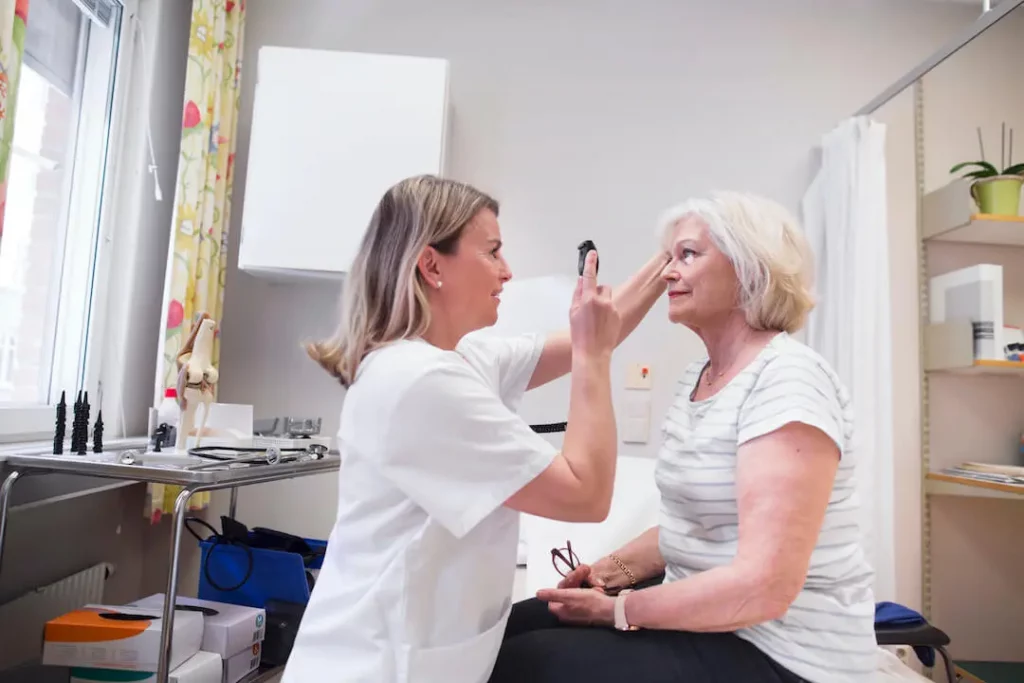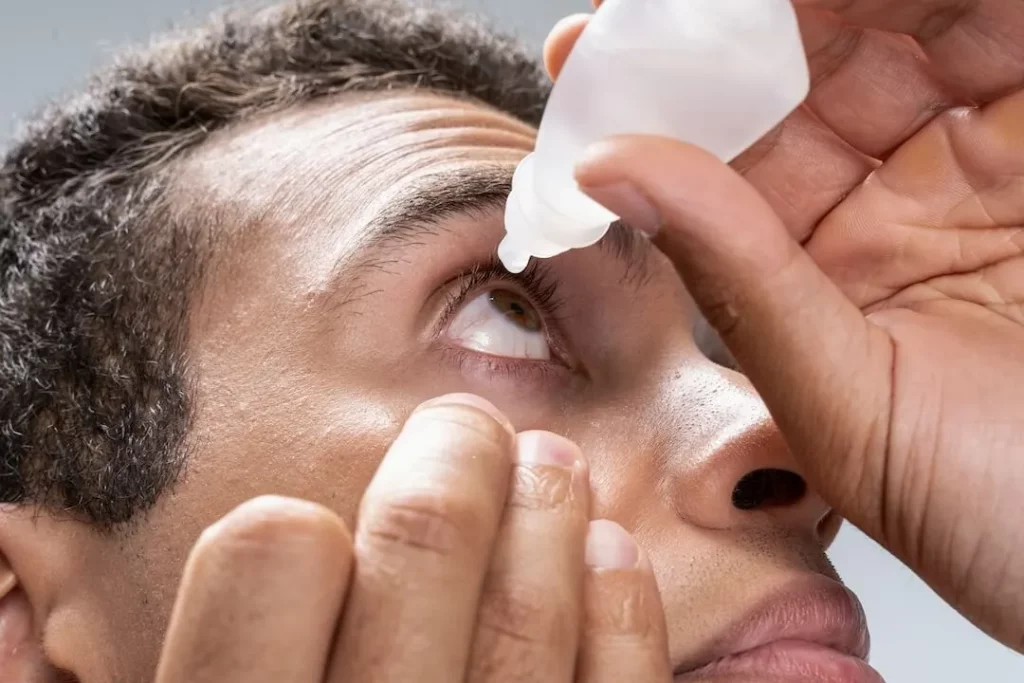Watering eyes can be a very irritating and uncomfortable problem. Find about the many potential causes of eyes watering all the time, the treatment and remedies.
It is estimated that more than 25 million Americans suffer from chronic watery eyes, which is a condition where the eyes water excessively and continually.
Therefore, it is important to accurately diagnose the eyes to receive the best possible treatment.
Why does My Eyes keep Watering?
There are many potential causes of eyes watering all the time. Some of the most common causes include one of the following 22 reasons.
Possible Causes of Watering Eyes
1. Allergies
Seasonal allergies are a common cause of eye-watering. The eyes may water as a result of the release of histamines, which are chemicals that are released in response to allergens.
2. Dry Eyes
When the eyes are not lubricated properly, they can become dry and irritated, which may lead to eyes watering.
3. Refractive Errors
If you have a refractive error, such as nearsightedness or astigmatism, you may experience eyes watering as a result of the eyes trying to compensate for the error.
4. Glaucoma
Glaucoma is a condition that can cause the eyes to water as a result of the increased pressure in the eyes. Glaucoma is a serious condition and requires treatment.
5. Cancer
Rarely, cancer can cause the eyes to water. An example of cancer that causes eyes to water is nasopharyngeal cancer.

6. Tumors
Tumors near or behind the eyes can cause eyes to water because of the pressure they put on the eyes.
7. Blepharitis
Blepharitis is a condition that causes inflammation of the eyelids, which can lead to eyes watering.
8. Conjunctivitis (Pink Eye)
Conjunctivitis is an inflammation of the conjunctiva, the thin membrane that covers the eyes. Conjunctivitis can cause the eyes to water and itch.
9. Bacterial Infections
A bacterial infection can cause eyes to water and become red and swollen such as Trachoma, an infection that is common in developing countries.
10. Viral Infections
A viral infection, such as herpes zoster, can cause eyes to water because of the inflammation it causes.
11. Stress
Stress can cause eyes to water as a result of the body’s response to the stress.
12. Sjogren’s Syndrome
Sjogren’s Syndrome is a condition that causes the eyes and other parts of the body to dry out. It can lead to eyes watering.
13. Systemic Diseases
Some systemic diseases, such as lupus, can cause eye watering because they affect the entire body.
14. Medications
Some medications can cause eye-watering as a side effect such as antihistamines, decongestants, and antidepressants.
15. Psychological Conditions
Some psychological conditions, such as anxiety or depression, can cause eyes to water.

16. Age
As people age, they may experience eyes watering more frequently due to the natural thinning of the eyes’ tear film.
17. Foreign Object Entered the Eye
If a foreign object such as dust, a piece of grit, or else enters the eye, it can cause the eyes to water.
18. Blockage in Tear Duct
A blockage in the tear duct can also cause eyes to water because the tears have nowhere to go.
19. Styes
A stye is a small, painful lump that can form on the edge of the eyelid. Styes can cause eyes to water. The causes of the styes may include an infection, a blocked tear duct, or a reaction to cosmetics.
20. Eyes Watering From Cold
Some people experience eyes watering when they have a cold because of the increased mucus production.
21. Cosmetics
Some cosmetics, such as mascara or eyeliner, can cause eyes to water if they are not used correctly. Contents or quality of the cosmetics can be the reason, you may want to change the brand if you feel its irritating your eyes.
22. Irritants
Airborne irritants such as smoke, fumes, or dust can cause eyes to water.
If you are experiencing eyes watering all the time, it is important to visit your optometrist or ophthalmologist for a comprehensive eye exam.
How to Diagnose Watering Eyes?
If you are experiencing eyes watering all the time, it is important to visit an ophthalmologist for a proper diagnosis. The ophthalmologist will ask you about your symptoms and perform several tests to determine the cause.
Common Watering Eyes Diagnosis
1. Examination of The Eyes
The ophthalmologist will look for any abnormalities of the eyes such as redness, inflammation, discharge or swelling.
2. Slit Lamp Examination
This test is used to examine the eyes in more detail. The slit lamp emits a bright light that is focused into the eyes so that the ophthalmologist can see the inner structures of the eyes.
3. Schirmer’s Test
This test measures the amount of tears that are produced by the eyes.
4. Refraction
This test is used to determine if you need glasses by measuring how well your eyes focus light.
5. Tonometry
This test is used to measure the intraocular pressure, which is the pressure of the fluid.

6. Tear Film Break-Up Time Test
This test is used to measure how long it takes for the tears to break-up.
7. Dilated Eye Exam
If the ophthalmologist suspects a problem with the eyes muscles or nerves, they may perform a dilated eye exam. This involves using special drops to dilate (widen) the pupils so that the ophthalmologist can see more of the inside of the eyes.
8. Allergy Testing
If your doctor suspects that you may have allergies, they may perform allergy testing by scratching the skin on the back or forearm and observing how the skin reacts.
9. Blood Tests
If your ophthalmologist doubts that you may have an infection, they may order blood tests by taking a sample of your blood and check it for signs of infection.
10. Imaging Tests (CT Scan or MRI)
Your doctor may order imaging tests if he or she suspects that your eyes are watering because of a problem with your eyes or brain. These tests can help your doctor see the structures inside your eyes and rule out other causes of your symptoms.
Once the cause of eyes watering is determined, the ophthalmologist can recommend the best treatment.
Eyes Watering Treatment
Many different treatments can be used for eyes watering all the time, depending on the cause. Some of the treatments that may be conducted by your doctor include:
1. Allergy Medications
If you are experiencing eyes watering due to allergies, your doctor may prescribe antihistamines or other allergy medications.
2. Artificial Tears
Artificial tears are drops that are used to lubricate the eyes and can help relieve eyes watering.
3. Eye Drops or Ointments
If you have a blockage in the tear duct, your doctor may prescribe eye drops or ointments to help clear the blockage like Tobradex, Xalatan or Refresh Tears.
4. Antibiotic Eye Drops
If you have a Stye, your doctor may prescribe antibiotic eye drops to help clear the infection such as erythromycin or bacitracin in addition to keeping the area clean.
5. Surgery
In some cases, surgery may be needed to correct a problem with the eyes muscles, nerves or tear ducts.
6. Nasal Sprays
If you are experiencing eyes watering due to a cold, your doctor may prescribe a nasal spray to help clear the sinuses.
7. Prescription Glasses
If you are experiencing eyes watering due to poor vision, your doctor may prescribe prescription glasses.

There are many different treatments that can be used for eyes watering all the time, but the best treatment for you will depend on the cause of your symptoms.
Eyes Watering Prevention
Lifestyle Changes
There are some things that you can do to help prevent eyes watering all the time. Some of these changes include:
- Avoiding touching your eyes to avoid infections
- Keeping your eyes clean and lubricated
- Avoiding allergens
- Avoiding smoking
- Using artificial tears
- Wearing sunglasses in bright sunlight
- Avoiding excessive use of contact lenses
- Scheduling regular eye exams
By following these tips, you can help reduce your chances of eyes watering all the time.
Conclusion
People will experience eyes watering all the time at some point in their life, which can be annoying.
Possible main causes of this condition could include allergies, infections, dry eyes, poor vision, eyes muscles or nerves problem, or something else.
There are several ways to go through watering eyes diagnosis, such as detailed patient history, physical examination, allergy testing, blood tests, imaging tests.
After the eyes doctor determines the cause of eyes watering, he or she will provide the best treatment for this condition in respect to the diagnosis. Treatment may include antibiotic eye drops, surgery to open the blockage, nasal sprays, prescription glasses, and lifestyle changes.
In some cases, eyes watering can be prevented by making some simple lifestyle changes like avoiding touching eyes, keeping them clean and lubricated using artificial tears.
If you enjoyed reading this article, you may want to checkout Sleeping Benefits for Health.
References: